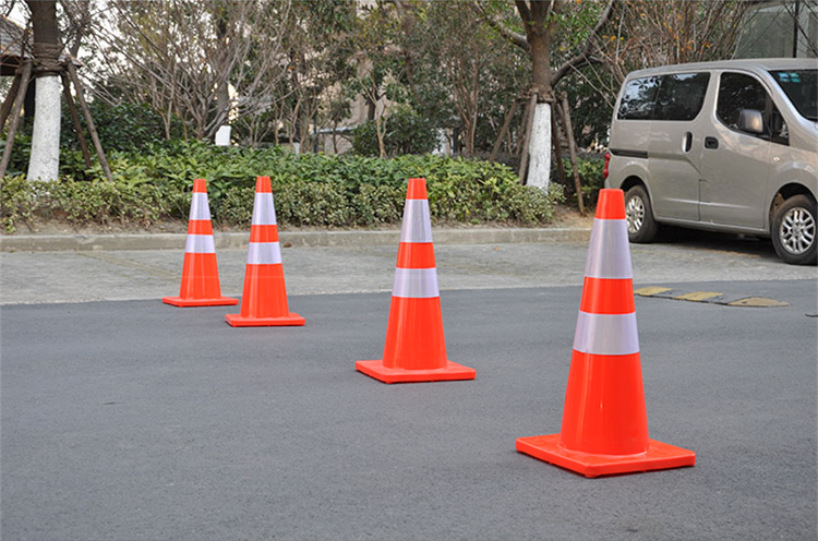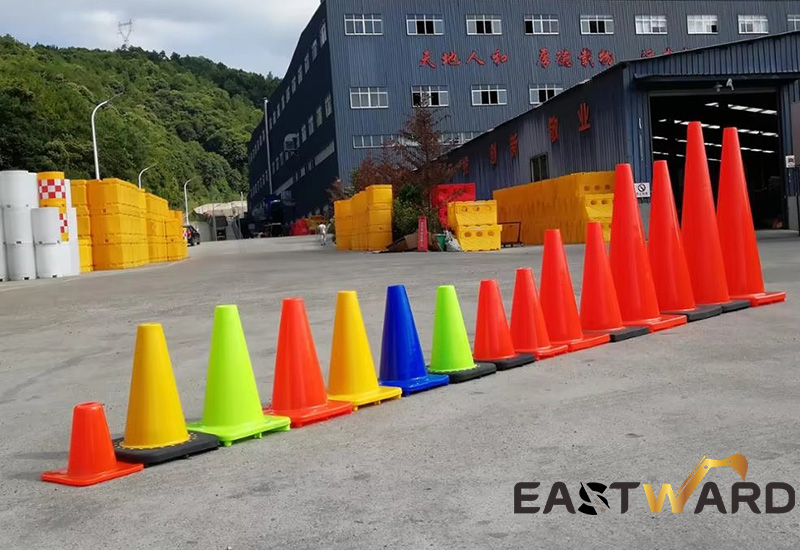Traffic Cone
How to Choose the Right Traffic Cones?
Traffic Cones, those bright orange beacons of safety, play a crucial role in managing and directing traffic on our roads. While their vibrant color and distinct shape are widely recognized, have you ever wondered about the weight and hight of these essential road safety tools? In this article, we’ll delve into the world of traffic cones, exploring their weights and heights to provide a comprehensive understanding.
Understanding Traffic Cone Construction:
Traffic cones are typically made from durable materials such as PVC (polyvinyl chloride) or rubber, ensuring they withstand the rigors of outdoor use. These materials contribute to the weight of the cone, but the design and construction also play a significant role.
Material Composition:
- PVC Cones: PVC traffic cones are lightweight yet sturdy. Their weight can vary, but they usually fall in the range of 2 to 5 pounds. The lightweight nature of PVC cones makes them easy to transport and deploy quickly.
- Rubber Cones: Rubber traffic cones tend to be heavier than their PVC counterparts. They can weigh anywhere from 5 to 10 pounds. The added weight provides stability, making rubber cones more suitable for windy conditions or high-traffic areas.

Size Matters:
Traffic cones come in various sizes, ranging from 12 inches to 36 inches in height. The size of the cone directly impacts its weight. Larger cones, commonly used in construction zones or major road projects, naturally weigh more than their smaller counterparts.
It’s important to note that the height of a traffic cone also contributes to its stability. Taller cones are generally more stable due to their larger base, making them suitable for use in challenging outdoor conditions.
Reflective Features:
Many traffic cones are equipped with reflective strips or sleeves to enhance visibility, especially during low-light conditions. The additional materials for reflectivity can contribute slightly to the overall weight of the cone.
Factors Influencing Traffic Cone Weight:
Weather Resistance:
Cones designed for prolonged outdoor use often incorporate weather-resistant features, such as UV protection and resistance to extreme temperatures. These additional features can add a slight weight to the cone but are essential for long-term durability.
Base Design:
The base of a traffic cone is a critical component influencing its stability. Heavier bases provide better resistance against wind and passing vehicles. The weight of the base, combined with the material and design, contributes significantly to the overall weight of the cone.
Conclusion:
Next time you encounter a traffic cone on the road or at a construction site, take a moment to appreciate its significance. Understanding the weight and height of traffic cones allows us to appreciate the thoughtful engineering behind these seemingly simple devices. From lightweight markers for quick setups to heavier, more stable cones for challenging conditions, these traffic management tools play a crucial role in maintaining safety and order on our roads.